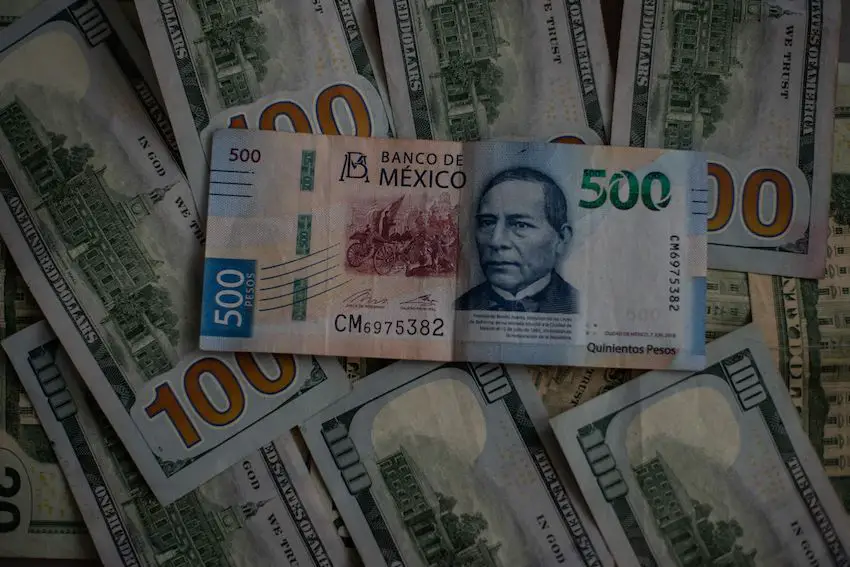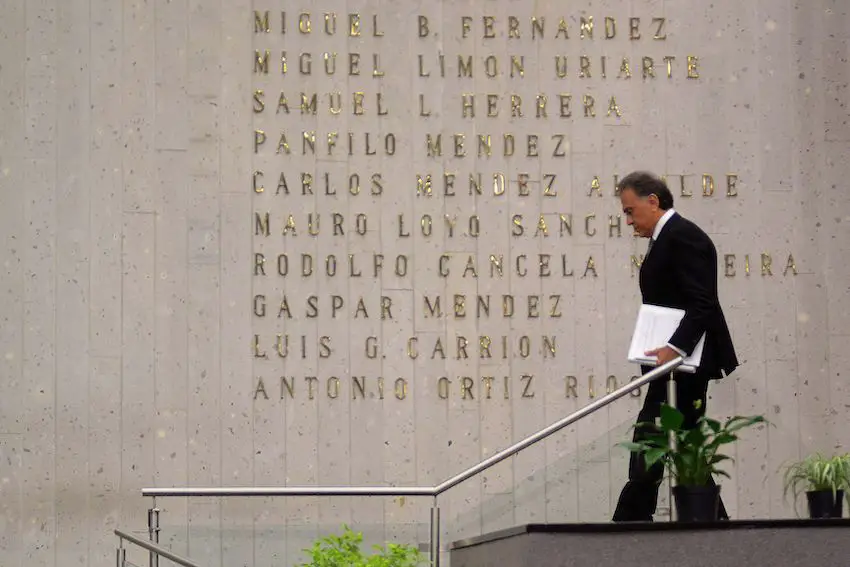Peso panics ahead of Senate vote on judicial reform

The likelihood that the Mexican Senate will soon approve the government’s controversial judicial reform proposal caused the Mexican peso to depreciate to over 20 to the US dollar on Tuesday.
The peso was trading at 20.07 to the dollar at 12:30 p.m. Mexico City time, but depreciated to 20.13 to the greenback earlier in the day, according to Bloomberg.
Mexico’s peso touches 20.13 per dollar in early trading as the Senate gets ready to approve AMLO’s controversial judicial reform
The government lacks just one vote but I suspect they won’t have much trouble in finding a flip flopper… pic.twitter.com/uOiTYXrghy
— JP Spinetto (@JPSpinetto) September 10, 2024
It closed at 19.89 to the dollar on Monday.
The depreciation on Tuesday came as it appeared increasingly likely that the ruling Morena party and its allies will have the numbers to approve the judicial reform proposal in the Senate.
The constitutional bill, which seeks to allow Mexican citizens to directly elect Supreme Court Justices and other judges, was approved by the lower house of Congress last week, causing the peso to depreciate to over 20 last Thursday.
Morena, the Labor Party and the Ecological Green Party of Mexico have 85 senators — one fewer than the number needed to secure an outright supermajority in the Senate — but there has been speculation that National Action Party (PAN) Senator Miguel Ángel Yunes Márquez, or his father, would vote in favor of the reform.
Yunes, a senator from Veracruz, failed to attend a PAN meeting on Monday night and other PAN lawmakers and officials were unable to establish contact with him.
If he voted with Morena and its allies, the judicial reform would pass Congress and be referred to state legislatures for their ratification.

Several sources suspect that Yunes Márquez and his father, former Veracruz governor Miguel Ángel Yunes Linares, reached a deal with Morena that would result in the withdrawal of criminal charges against the two men and Yunes Márquez’s brother Fernando.
Ex-governor Yunes Linares is a “substitute senator” for the PAN, meaning that he can attend the Senate in place of his son and vote in favor of the judicial reform proposal, likely on Tuesday or Wednesday.
On Tuesday, Yunes Márquez requested to step down as a senator to attend to health problems, allowing his father to take his place.
Milenio newspaper columnist Ricardo Raphael claimed in a column on Monday that Yunes Márquez would request leave and that Yunes Linares would replace him and vote in favor of the judicial reform proposal.
“He will be the traitor that was needed to break the opposition bloc,” Raphael wrote.
“In exchange for this defection, [Morena’s Senate leader] Adán Augusto [López Hernández] offered to make the various arrest warrants against the Yunes family disappear,” Raphael added.
Gabriela Siller, director of economic analysis at Banco Base, said on X on Tuesday morning that the peso was “the most depreciated currency today due to the increase in the probability of approval of the reform to the judicial power.”
On Monday, she said that if the reform proposal is not approved, the Mexican peso could strengthen by “approximately one peso” against the dollar by the end of the year.
If the reform is approved, the USD:MXN exchange rate will increase to 20.50 “first and to 21 pesos per dollar later,” Siller forecasted.
The peso has depreciated more than 15% since the June 2 elections in which Claudia Sheinbaum won the presidency, and Morena and its allies secured large majorities in the Chamber of Deputies and the Senate, putting them in a strong position to approve the judicial reform proposal and other constitutional bills President Andrés Manuel López Obrador sent to Congress in February.
Concern over the likely approval of the reforms has been a major factor in the depreciation, albeit not the only one.
The peso depreciated to above 20 to the US dollar in early August as fears of a recession in the United States upended markets around the world. An unwinding of global carry trades, including bets on the peso by Japanese investors, has also recently affected the currency.
With reports from El Financiero and Reforma
Source: Mexico News Daily

